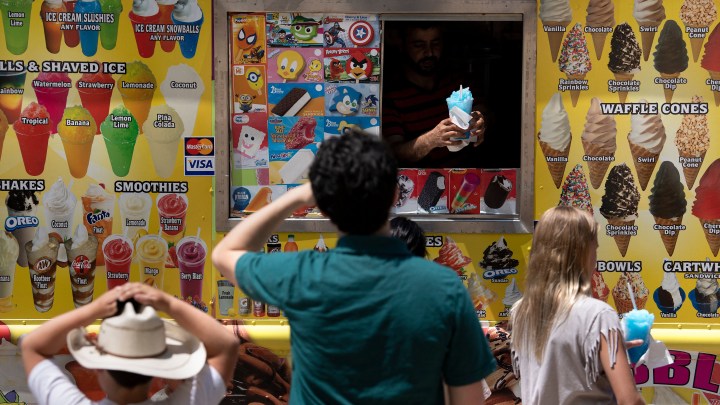
More frequent, extreme heat waves linked to workplace injuries
More frequent, extreme heat waves linked to workplace injuries

Working the fryer at Jack in the Box can get pretty warm, even on a normal day. But when temperatures in the Sacramento area topped triple digits for several days in June, the kitchen got dangerously hot for Noemi Graciano. She grew dizzy and got a headache as the air conditioner failed to keep up.
“I felt uncomfortable because you’re just sweating,” she said.
In Oregon, where temperatures reached almost 120 degrees in June, at least two workers died on the job of heat-related causes, according to state Occupational Safety and Health records.
Kate Suisman, an attorney at the Northwest Workers Justice Project, said her group has heard from people who work in construction, farming and warehouses.
“We had a lot of issues with acclimatizing your bodies, and access to enough water to drink, shade. And even just knowing the signs and symptoms of what does heat illness looks like,” she said.
The dangers of heat in the workplace go beyond heat exhaustion and dehydration, said UCLA professor Jisung Park. He’s the lead author of a new paper that found higher temperatures were linked to more injuries at work.
“Actually the vast majority of the incidents that are caused by hotter temperature in our data appear to be completely or ostensibly unrelated things. So, falling off a ladder, being hit by a moving vehicle, getting your hand caught in a machine,” he said.
That’s because heat affects cognitive function, too. The study found the risk of injury increased for workers outside and inside, and was highest in low-wage industries that require physical labor.
“I think it clearly suggests that the scope and magnitude of the problem may be bigger than we’re accustomed to thinking,” Park said.
And as heat waves have become more intense, regulations to mitigate the dangers haven’t kept up.
“It’s something people should have focused on a decade ago when it, you know, wasn’t that bad, but now there’s really an urgent need to do it,” said Deborah Berkowitz with the National Employment Law Project. The Occupational Safety and Health Administration has no federal set of guidelines for heat safety at work, she said.
Several states have created their own, including California, and in recent weeks, Oregon and Washington.
“Having a standard of what employers need to do in terms of acclimatization and hydration, and, you know, work-rest regimens, I think will really go a long way in making the workplace safer,” she said.
The UCLA study found injuries associated with heat decreased after 2005, around the time California adopted workplace heat rules.
There’s a lot happening in the world. Through it all, Marketplace is here for you.
You rely on Marketplace to break down the world’s events and tell you how it affects you in a fact-based, approachable way. We rely on your financial support to keep making that possible.
Your donation today powers the independent journalism that you rely on. For just $5/month, you can help sustain Marketplace so we can keep reporting on the things that matter to you.












